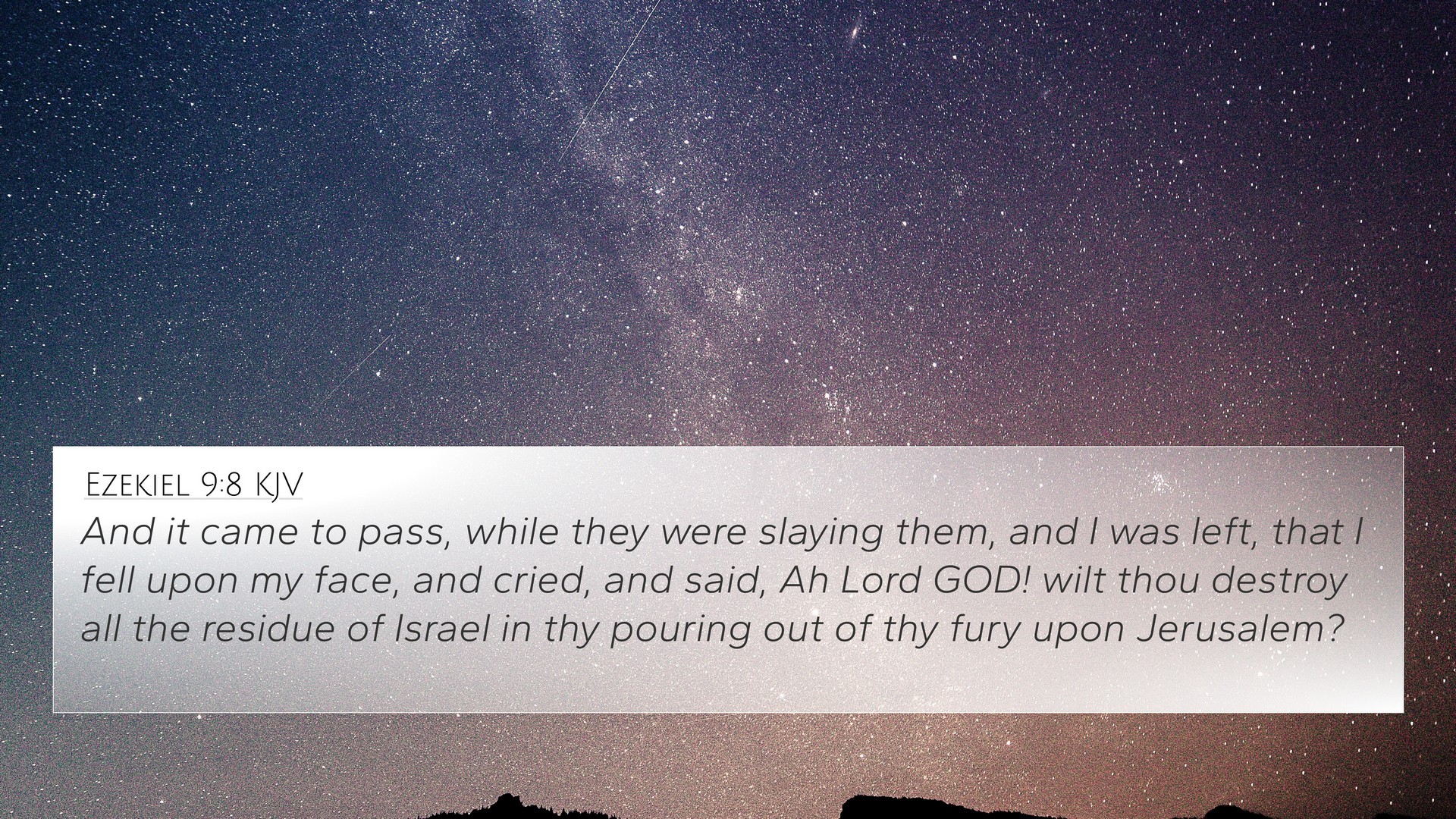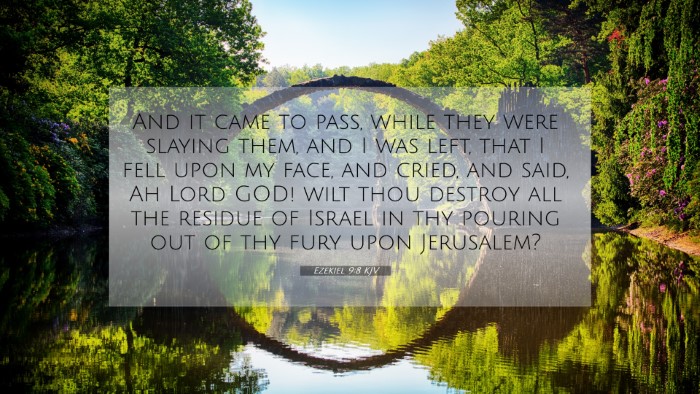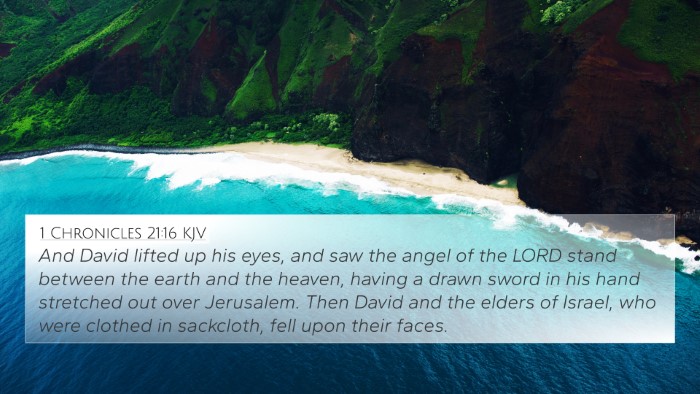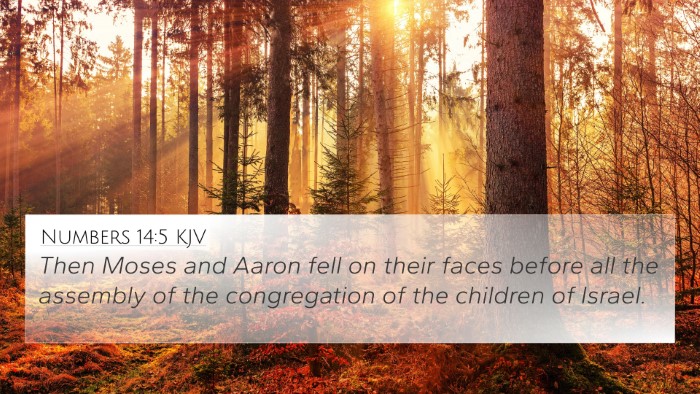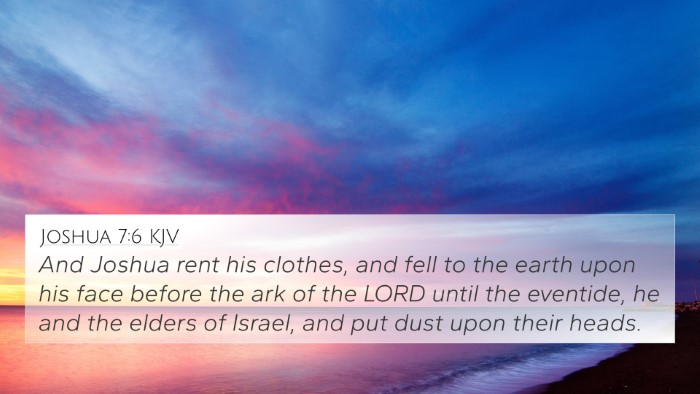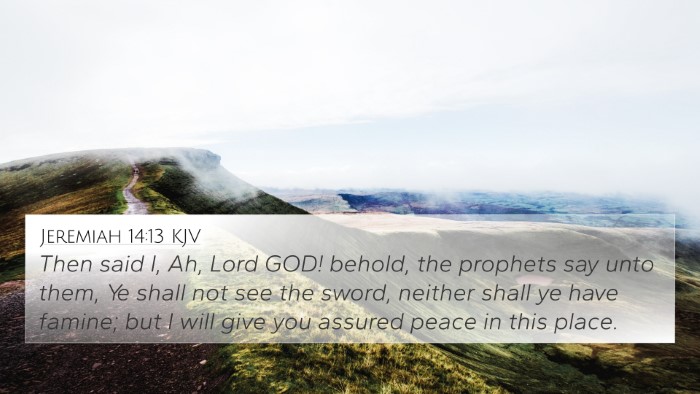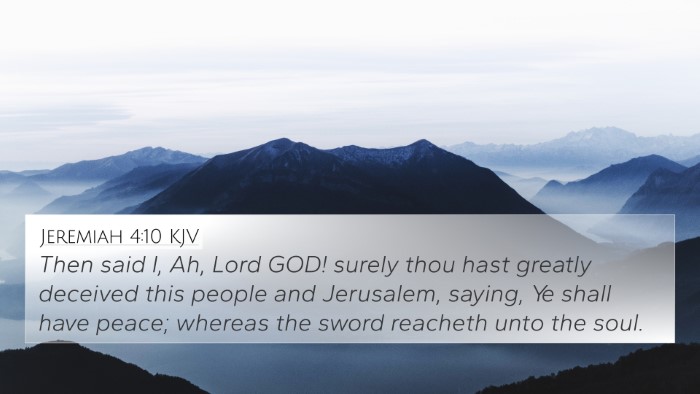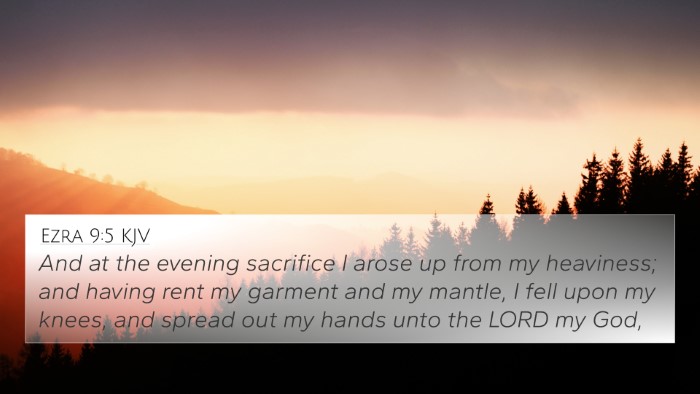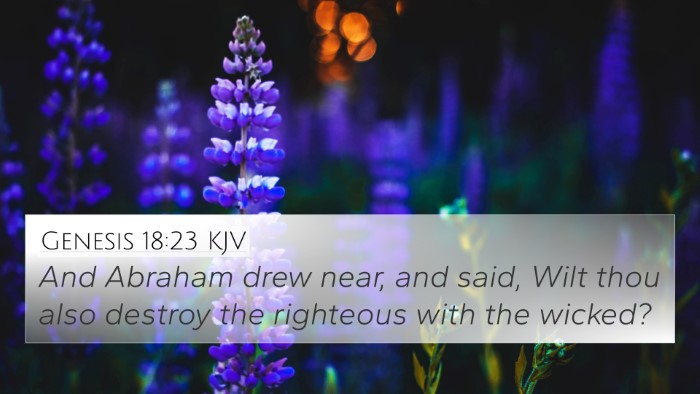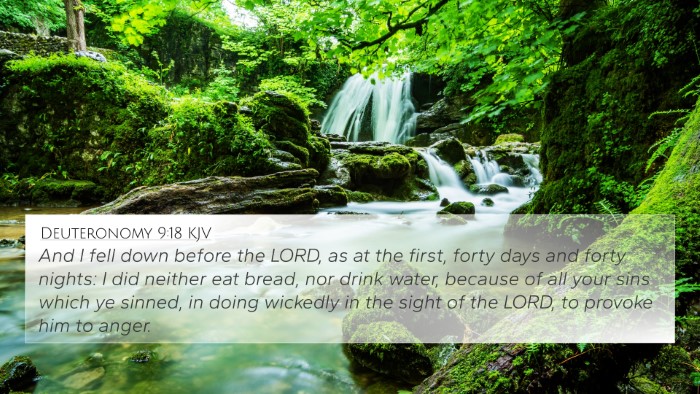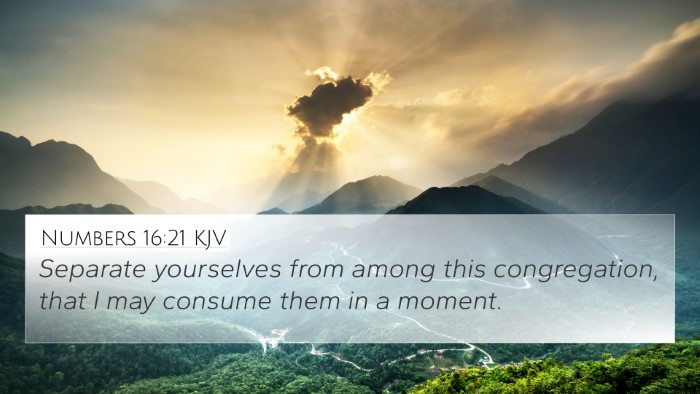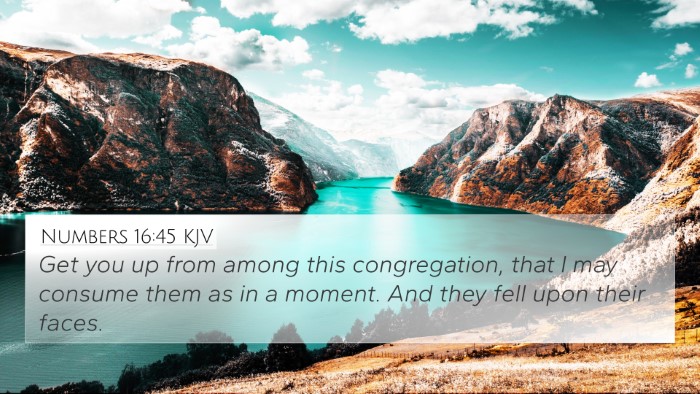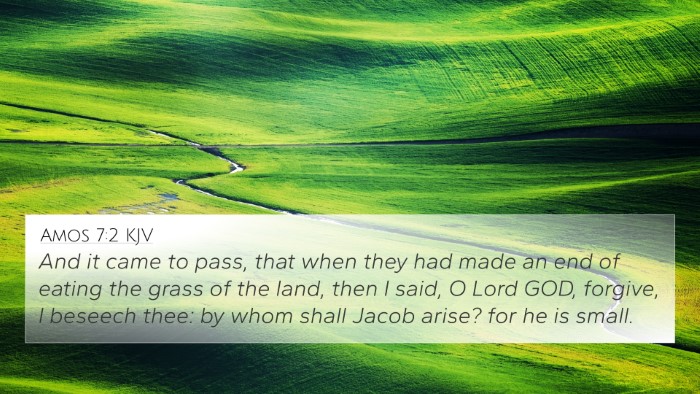Ezekiel 9:8 - Summary and Interpretation
Ezekiel 9:8 states: "And it came to pass, while they were slaying them, and I was left alone, that I fell upon my face, and cried, and said, Ah Lord God! wilt thou destroy all the residue of Israel in thy pouring out of thy fury upon Jerusalem?" This verse captures a moment of intense intercession and sorrow as the prophet Ezekiel witnesses the judgment being executed upon Jerusalem.
Meaning of Ezekiel 9:8
The meaning of this verse revolves around several key themes:
- Judgment and Accountability: This verse highlights the seriousness of God's judgment against sin. Ezekiel is distraught at the sight of the destruction happening, indicating the weight of accountability that Israel bears.
- Intercession: Ezekiel's cry to God exemplifies the role of a prophet as an intercessor. His plea reflects a deep concern for the people, emphasizing God's mercy amidst justice.
- Divine Fury: The phrase "pouring out of thy fury" speaks to the intensity of God's judgment and the righteous anger he holds against sin, particularly in the context of Jerusalem's failures.
Commentary Insights
Matthew Henry's Commentary
Matthew Henry notes that the lamentation of Ezekiel reveals the compassionate nature of God’s appointed leaders. He emphasizes that even in judgment, there remains a hope for mercy and repentance. God's anger is justified due to the persistent sinfulness of His people.
Albert Barnes' Notes
Albert Barnes elaborates that Ezekiel, feeling the weight of Israel's sin, acts as a mediator. His question reflects a desire for God's sparing grace and shows his understanding of the severity of God's decree against sin. Barnes suggests that this moment illustrates the struggles of a faithful prophet amidst judgment.
Adam Clarke's Commentary
Adam Clarke points out the audacity of Ezekiel’s plea—it is not just a question of survival but rather a cry for the integrity of God’s promises to Israel. Clarke honors Ezekiel’s solidarity with his people during this time, showcasing the profound relationship between divine judgment and human intercession.
Cross-References to Ezekiel 9:8
This verse can be linked to several other scriptures that expand on its themes:
- Jeremiah 7:20 - Discusses God's anger against Israel's iniquities.
- Lamentations 3:43 - Reflects on the connection between sin and suffering.
- Ezekiel 22:30 - Highlights the need for intercessors among the people.
- Romans 9:2-3 - Paul expresses similar anguish for his people in their disobedience.
- Amos 7:1-6 - Depicts a vision of judgment and intercession.
- Isaiah 53:5 - Connects to the suffering servant who bears the iniquities of many.
- Matthew 23:37 - Jesus laments over Jerusalem, similar to Ezekiel's sorrow for the city.
Connections and Comparative Analysis
The connections between these verses and Ezekiel 9:8 create a rich tapestry for understanding God's justice and mercy. For instance, the intercessory role seen in Ezekiel can also be illustrated in the New Testament through Christ's advocacy on behalf of humanity. The thematic connections reveal that the heart of God is both just and merciful.
Cross-Referencing Resources
For those studying Bible cross-references, these tools can enhance understanding:
- Bible Concordance: A valuable resource for finding verses related to specific themes.
- Bible Cross-Reference Guide: Helps in identifying connections among scriptures.
- Cross-Reference Bible Study: Encourages deeper exploration into thematic verse connections.
Study Methods and Engagement
Employing various methods for cross-referencing can uncover nuances in scriptural themes:
- Use a Bible reference resource to identify similar themes across both Testaments.
- Explore the interrelationships between Old Testament prophets and New Testament teachings during study sessions.
- Investigate the emotional expressions of the prophets compared to the responses of Jesus to sinful cities.
Conclusion
In summary, Ezekiel 9:8 not only showcases the anguish of the prophet amidst impending judgment but also serves as a pivotal point for understanding intercession, divine justice, and mercy. The connections formed through cross-referencing enhance our understanding of the continuity of God's message throughout the scriptures.
